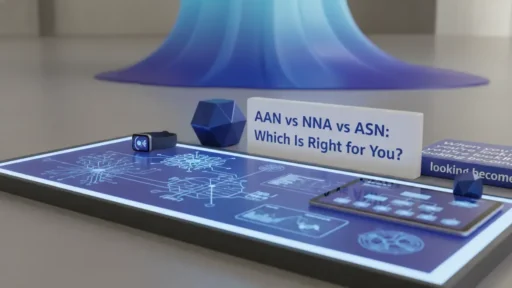In the competitive landscape of enterprise B2B sales, closing deals with corporate giants requires more than just a keen understanding of your product or service; it demands a deep comprehension of the intricate dance between buyer and seller.
This process, marked by its complexity and the high stakes involved, involves navigating through layers of decision-makers, each with expectations and reservations. It all comes down to developing trusting relationships, proving your worth, and then finding common ground. We are providing these business giants with strategic objectives.
Whether it’s ensuring smooth transactions with online notary services, safeguarding assets through title and escrow, or providing peace of mind with title insurance, each step in the enterprise sales process is a carefully orchestrated move toward sealing the deal. This guide aims to unravel these complexities, offering insights and strategies to help you master the art of closing deals within the enterprise B2B sector.
Understanding Client Needs: The Bedrock of Discovery 
At the heart of the enterprise B2B sales process lies the discovery phase, a critical period of exploration and understanding that sets the stage for all that follows. This initial step is about diving deep into the corporate psyche, unraveling the intricate web of needs, challenges, and aspirations that define a potential client.
It’s not merely about identifying what they want but comprehending the underlying whys—why they seek a solution, why certain challenges are pivotal, and why your solution might be the answer they didn’t know they were searching for.
Every piece of information in this phase, from their interest in streamlining transactions with services like online notary to safeguarding their interests with robust title insurance, forms the cornerstone of a tailored, impactful sales strategy. Mastery of the discovery phase is akin to a navigator charting a course through uncharted waters, where every piece of data is a star guiding you toward a successful close.
Diagnosing Challenges: The Foundation of Tailored Solutions
After the discovery, diagnosing the enterprise’s specific challenges and pain points becomes paramount. This diagnosis is not a cursory glance but a deep, analytical dive into these corporations’ operational, strategic, and sometimes existential challenges.
It’s about moving beyond the superficial to uncover the root causes of their dilemmas—inefficiencies in managing large-scale transactions, vulnerabilities due to lack of proper title and escrow services, or the need for seamless real estate transactions safeguarded by title insurance. This phase demands a blend of empathy, expertise, and strategic thinking, enabling you to craft solutions that resonate profoundly with potential clients.
The diagnostic stage is where possibilities are envisioned, where your understanding of the client’s needs is transformed into a blueprint for a solution that addresses their immediate challenges and aligns with their long-term vision and objectives.
Designing Solutions: Tailoring Your Offer
With insights from the earlier phases, sales teams can design customized solutions. For a real estate firm, this might mean integrating a title and escrow service that ensures transparency and efficiency, addressing specific pain points like transaction security or speed.
Crafting the Proposal: Showcasing Value and Vision
After thoroughly understanding and diagnosing the client’s needs, crafting a compelling proposal is the next critical step in the enterprise B2B sales process. This proposal is more than just a document outlining the features and benefits of your solution. It’s a tailored narrative that directly connects your offering’s value to the client’s challenges and goals.
For instance, if a client is concerned about the security and efficiency of their real estate transactions, illustrating how your online notary service can revolutionize this process by offering unparalleled convenience and legal integrity becomes critical.
Your proposal should articulate how your solution—through innovative escrow services or reliable title insurance—aligns with their strategic objectives, ultimately presenting a clear, undeniable case for why your solution is not just the best choice but the only choice that makes sense for their situation.
Navigating Objections: The Art of Persuasion and Adaptation
Encountering objections is a natural and expected part of the enterprise sales process. However, how you handle these objections can make or break the deal. This stage requires a delicate balance of persuasion, where you reaffirm the value of your solution, and adaptation, where you might need to tweak your offering or approach based on feedback.
For example, a client might be hesitant about the costs of implementing a new title service platform. This is an opportunity to emphasize the long-term ROI, such as reduced legal risks and enhanced transaction efficiency.
Effective objection handling is not about dismissing concerns but addressing them head-on, demonstrating your commitment to finding a solution that works for everyone involved.
Closing the Deal: Beyond the Transaction
The culmination of the enterprise B2B sales process is closing the deal, which signifies the beginning of a new business relationship rather than the end of a transaction. Closing is about ensuring all parties are aligned, from the terms of the deal to the expectations for implementation and support. In transactions involving significant assets, such as real estate, ensuring that services like title and escrow are clearly understood and agreed upon is crucial. It’s also an opportunity to solidify trust and set the stage for long-term collaboration. A successful close involves not just a handshake (virtual or otherwise) but establishing a partnership that will evolve, adapting to new challenges and opportunities.
Conclusion
Mastering the enterprise B2B sales process involves continuous learning, adaptation, and strategic execution. Success in this arena requires a deep understanding of the complex landscape in which corporate giants operate, coupled with a keen ability to tailor solutions that address their unique challenges and goals.
From the initial discovery phase to the final handshake, each step should be navigated with precision, empathy, and an unwavering focus on delivering value. Integrating innovative solutions, such as online notary services or comprehensive title and escrow services, into your sales strategy offers your clients unparalleled convenience, security, and efficiency.
Remember, closing a deal with a corporate giant is not just about making a sale; it’s about forging lasting partnerships that drive mutual growth and success. As you refine your approach and learn from each interaction, you’ll close more deals and establish a reputation as a trusted advisor in the enterprise B2B space.
Frequently Asked Questions About The Enterprise B2B Sales
Q: What makes enterprise B2B sales different from other types of sales?
A: Enterprise B2B sales involve longer sales cycles, multiple decision-makers, and larger deal sizes than other sales types. They require a deep understanding of the client’s business, a tailored approach to solving their problems, and a strategic, relationship-based sales process.
Q: How important is personalization in the enterprise sales process?
A: Personalization is crucial in enterprise sales. Tailoring your approach, solution, and communication to fit each client’s unique needs and challenges demonstrates an understanding of their business. It can significantly increase your chances of closing the deal.
Q: Can technology like online notary services impact the closing of deals?
A: Yes, incorporating technology such as online notary services can significantly impact the closing of deals, especially in industries like real estate, where legalities play a critical role. These technologies streamline processes, enhance security, and offer convenience, making them attractive to corporate clients.









